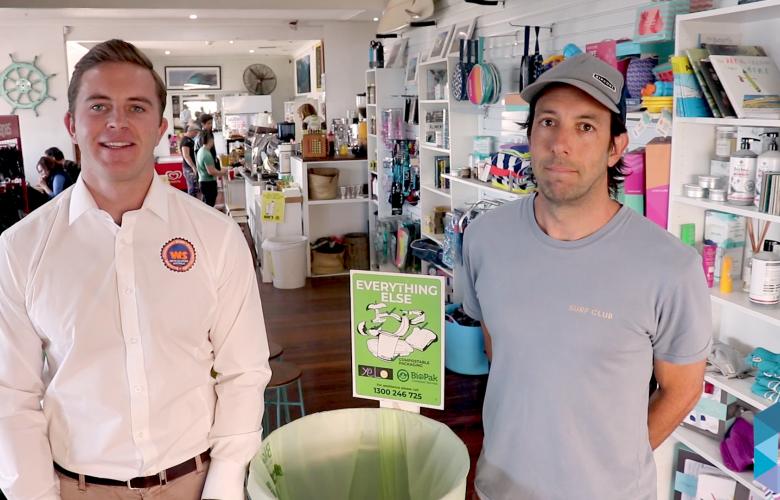Perth cafes reduce waste bills by 20% with coffee cup composting service
Contact
Perth cafes reduce waste bills by 20% with coffee cup composting service
Café patrons in Perth will be encouraged to compost their disposable coffee cups as part of Australia’s first comprehensive national composting service for food service packaging.
It’s Plastic Free July and Australians across the nation are looking to reduce the amount of plastic they are sending to landfill.
In Perth, cafés are joining the movement to divert food scraps and packaging from landfill, joining forces with BioPak to trial Australia’s first comprehensive national composting service for food service packaging.
Under the service, BioPak, a global leader in the innovation and production of environmentally-sustainable packaging, will supply specially designed collection bins to collect used coffee cups and BioPak compostable takeaway food packaging directly from local cafes or workplaces.
These bins will be collected weekly and sent to commercial facilities to be composted – and in only eight weeks, they will be turned into nutritious soil compost for gardens or farms.
Mike Pond’s cafe Yelo is one of the first cafes in Perth that has signed up for the service, who said the reaction from customers has been fantastic so far.
“This is a fantastic initiative, which we believe will help divert potentially tonnes of waste away from landfills and turned into composting that can be used for commercial-level agriculture – at no cost to our customers,” Mr Pond said. ”In fact the composting service will save us more than 20% a year in waste bills.”
“We are big supporters of the concept of a truly circular economy, using rapidly renewable and sustainably sourced material that return nutrients back into the soil at the end of their life.
BioPak founder Richard Fine said the service aimed to maximise the environmental benefit of compostable, single use disposable packaging, helping customers in reducing the environmental impact of their business.
“In Australia, we send more than eight million tonnes of organic waste to landfill every year, including 1.5 million tonnes of food waste,” Mr Fine said.
“The problem with this is that when food waste decomposes in landfills, it releases methane, which is a greenhouse gas 80 times more potent than carbon dioxide, resulting in enormous damage to our environment.
“Switching to compostable food service packaging, including compostable coffee cups, can divert much of this material from going to landfill.”
More from The Business Conversation:
Anticimex Group strengthens South Coast offering with second acquisition in Australia this year
Mystery businessman spends $500k to revitalise Gold Coast suburb
Ombudsman report suggests Australia is falling behind on accessible capital for small business




